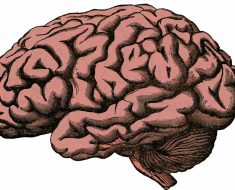It seems like everyone is worried about the addictive nature of video games, but what does the science actually say?
When the World Health Organization (WHO) announced they were about to make gaming disorder a diagnosable disease, it was like a bomb had dropped. A bomb that blew open the debate about the effects of games on people and their mental health. Mental health as a field is something we still have a lot to learn about and throwing video games into the mix creates even more confusion. It’s a complex issue and one that has people divided.
In my years working in and around the games industry, as I have written about previously, I see two camps: those who have grown up with games (usually those under 35) and those who don’t game themselves but have kids that do (usually over 35). The ‘game natives’ tend to see the artistic, cultural and even social merit of games. The older folk tend to look at games with a sceptical eye—an addictive waste of time.
This hate on video games is perhaps why many are so surprised when I tell them the games industry is worth more than film and music combined—nearly US$140 billion by the end of this year.
So while the WHO decision has the haters saying I told you so, experts in the field are saying not so fast. Is gaming disorder really a thing or is it just the latest saga in the video game moral panic?
A gaming disorder diagnosis
To paraphrase the WHO’s rather long definition, gaming disorder is basically the inability to stop playing a game, even when it totally takes over (or even ruins) your life. Interestingly, the definition includes offline games but is not clear if this includes tabletop or other non-screen-based games.
Unsurprisingly, the decision sparked outcry from the games industry. The US-based Electronic Software Association (ESA) issued a statement asking the WHO to reconsider its position. In Australia, the Interactive Games & Entertainment Association (IGEA) made similar noises.
Both associations argue that science is actually on their side, with the IGEA stating that the evidence supporting the addition of the disorder is “highly contested and inconclusive”.
https://youtube.com/watch?v=lJ71KAO0mtc%3Fcolor%3Dwhite
But science?
So, what does the science actually say?
So far, 28 researchers who study negative uses of games (including the University of Sydney’s Starcevic Vladan) published an open letter to the WHO against their decision. In this letter, the researchers argue that the current research base is low quality and that it “leans too heavily on substance abuse and gaming criteria” and suffers from a lack of consensus about what the symptoms actually look like.
The Australian-based Young and Well Cooperative Research Centre’s Gaming Research Group conducted a comprehensive review of more than 200 research papers. Their findings included that there are creative, emotional and social benefits of playing games (even violent ones) and—perhaps most surprisingly in the context of the WHO’s classification—non-gamers actually had the “poorest mental health correlates”.
Not all games are created equal
The most important thing in understanding the validity of gaming disorder as an actual illness is that not all video games are created equal. Just like any other media form, the types and genres of games vary wildly. Take film, for example—there are many films that are violent and have no redeeming qualities, while others promote beauty and artfulness, yet we do not paint all films with the same brush.
Indeed, the Young and Well CRC report I mentioned above needs to be read with this in mind—the majority of video games that appear to have a positive impact on mental wellbeing are those that are massively multiplayer online games (MMOs). In other words, they are social and often team based.
Similarly, some games are designed to be very addictive because their revenue model requires it. Anyone who has played a free-to-play game on their phone will recognise this sort of game. Other games are designed to provide the player with a sublime, artful experience.
So what does it all mean?!
Source: Read Full Article





